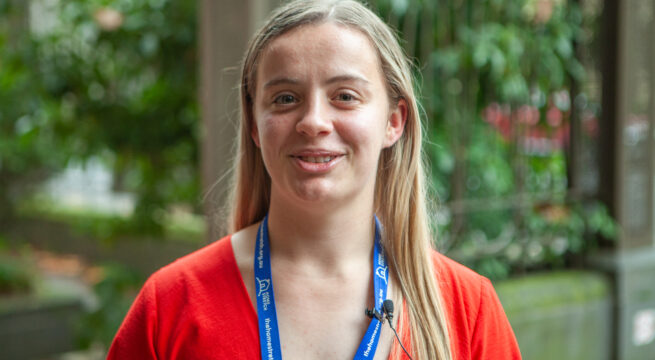
Push for increased housing and social support for young people transitioning out of foster care
20 June 2023, ABC News
Original article
Jasmin Malham moved out of home when she was 18.
Growing up in the foster care system, she was at its mercy when she became an “adult” on her 18th birthday.
With no parent to call, she went through some dark days as she stumbled through the challenges of early adulthood alone.
“Like, my fish tank broke and the water went all over the carpet,” she said.
“Or my washing machine was rattling on the uneven floor and coming away from the wall, and I didn’t know what to do.
Key points:
- After years of campaigning, states are beginning to legislate reform to foster care
- Every state and territory has now agreed to provide formal foster care until the age of 21, up from 18 years of age
- Advocates are calling for more support for housing for young people
“One night I went to go make dinner, and I didn’t have a peeler to peel the potatoes.
“And then I went and got a peeler … the next day I didn’t have anything to mash the potatoes.”
As a young woman living on her own, she admits she was scared.
Ms Malham said without support from Anglicare Victoria, she does not know where she would be.
“I spent a lot of time alone after moving out. There were a lot of dark days,” she said.
“Sometimes it was me calling my support worker and saying, ‘What’s tax?’ Or, ‘Now I’ve got a job interview, what do I wear?’
“When I left my placement, I didn’t have that parental figure to help with simple, little things. You don’t get taught these things at school.”
Every state and territory has now agreed to provide formal foster care until the age of 21, up from 18 years of age.
In the Victorian parliament, opposition MP Matthew Bach has introduced a private member’s bill to extend out-of-home care to 21 years of age, after a previous Labor bill stalled.
The bill is due to be debated in parliament next month.
However, a Victorian government spokesperson said the Andrews Labor government did not support private member bills.
While the state government has not legislated to officially extend the out-of-home care age to 21 years, it has funded a program called Home Stretch, that helps children 18 and over to stay with their foster carer until they turn 21 — if the carer agrees.
The spokesperson said in January 2021 the Victorian government invested $64.7 million over four years and $43 million ongoing into Home Stretch.
The 2021-22 state budget also provided a further $39 million over four years and $13.8 million ongoing, to expand Home Stretch and a program also supporting young people called Better Futures.
Despite the challenges of going through the foster care system, Ms Malham won a Young Citizen of the Year award in 2019 and 2020.
She is now studying paramedicine and has two part-time jobs.
“I wouldn’t be doing any of that without the support that I’ve had,” she said.
She said she was pleased to hear 18-year-olds in foster care will receive support for longer under the reforms promised across the country.
“It’s amazing to hear so many other kids will have that opportunity,” she said.
“People my age still need support.”
Push for housing and welfare support
Chief executive of Anglicare Victoria and chair of The Home Stretch, Paul McDonald, said 18 to 21-year-olds in foster care were some of the most vulnerable people in Australia and they need support.
“International evidence says if you extend care to 21, you will halve the homelessness rates for this group,” he said.
“Extending the age could also double the education and employment rates for young people, reduce hospitalisation and reduce contact with the correction system.”
Federal government representatives and experts met in Melbourne last week to discuss the implementation of Australia’s most significant reform to the foster care system.
Mr McDonald said all state and territory governments also needed to prioritise increasing housing stock and support for young Australians.
“It’s time for the federal government to step up and prioritise housing, Centrelink payments and mental health support. We think the federal government can now play a very important part in further assisting these people.”
